Have you ever wondered why kombucha usually contains a minimal amount of alcohol? However, this lively tea beverage is by no means comparable to wine or beer. During fermentation, kombucha also produces a small percentage of alcohol. To help you better understand this process, we've compiled all the important questions about kombucha and its alcohol content! How is alcohol produced in kombucha? Is there alcohol-free kombucha? Can pregnant women drink kombucha? Can I make alcohol-free kombucha?
Kombucha - The tea drink briefly explained!
Kombucha is a fermented beverage produced using a kombucha culture. The tea fungus (kombucha fungus, SCOBY) consists of various microorganisms, bacteria, and yeast cultures. It transforms tea and sugar into a healthy refreshing beverage. During the fermentation process, bacterial cultures and yeast metabolize sweetened tea into valuable vitamins, organic acids, and enzymes, among other nutrients.
How is the alcohol in kombucha created?
Anyone who has ever fermented kombucha will quickly understand how alcohol can form in kombucha. Simply put, during fermentation, the yeast ferments the sugar in the tea mixture. This creates alcohol and natural carbon dioxide. The bacteria, in turn, feed on the resulting alcohol, converting it into healthy nutrients. This also creates the sour taste typical of kombucha.
Would you like to ferment your own kombucha? Here 's a step-by-step guide for beginners!
What is the alcohol content of kombucha?
First, it's important to understand that the duration and type of fermentation also influence the alcohol content of kombucha. It can contain up to 3% alcohol. Usually, it's actually less. After 14 days of fermentation, the alcohol content is approximately 0.5 to 1 percent. Similar to orange juice. Kombucha that hasn't been pasteurized and continues to ferment can therefore vary in alcohol content. According to German food law, a beverage with a maximum of 0.5% alcohol can be described as "alcohol-free."
Can pregnant women and children drink kombucha?
Due to the low but still present alcohol content, pregnant and breastfeeding women should play it safe and avoid kombucha. Children should also avoid drinking kombucha daily or too often for the same reason (a maximum of approximately 125 ml per day is recommended).
This is how you can influence the alcohol content during fermentation at home!
The alcohol content in homemade kombucha can be influenced with these simple tricks.
1. Use less sugar
The amount of sugar you add to your kombucha brew will change the alcohol content. Less sugar means fewer nutrients for the yeast to convert into alcohol. However, sugar is an essential ingredient for a balanced and delicious kombucha flavor. Using far too little sugar can result in a very sour, vinegary kombucha.
2. The Scoby
The kombucha fungus can also influence the production of alcohol. Depending on the composition of the fungus, the amount of alcohol can vary. The distribution and accumulation of bacteria and yeast in the scoby, in particular, influences the kombucha starter and, ultimately, your kombucha. Ideally, there shouldn't be too many yeasts in the scoby. An imbalance with too few bacteria in the scoby ultimately means fewer little helpers that can metabolize the alcohol.
3. Air quality and room temperature
Another aspect that can affect the alcohol content of your kombucha is the environment in which you place your fermentation vessel. Always choose a location with good ventilation. The bacteria need sufficient oxygen to process the alcohol. It's also important that your fermentation vessel has the largest possible opening and that the lid is permeable to air.

What is "Hard Kombucha"?
"Hard kombucha" refers to kombucha that contains a higher percentage of alcohol. In the US and other parts of the world, this alcoholic beverage, with approximately 5% alcohol, can already be found on many supermarket shelves. During fermentation, various yeasts, such as champagne yeast, are added to the kombucha mixture, creating a delicious alternative to beer and cider.
FAQs
Why is kombucha healthy?
Our bottlings have up to 50% less sugar than conventional soft drinks. Thanks to traditional fermentation without pasteurization using the miracle fungus, each bottle contains live bacteria and yeast cultures. A variety of other ingredients are also created during fermentation. Fermented foods, such as kombucha and water kefir, have been proven to support gut health.
When should you drink kombucha?
First of all, it quenches thirst very well in any situation, especially after exercise. Furthermore, this refreshing tea drink can aid digestion after a heavy and fatty meal. It offers a healthy coffee substitute that gently keeps you awake. It's also perfect as a healthy alcohol alternative when mixed with other juices or ingredients.
How much sugar is in kombucha?
This actually varies depending on the production method and the type of batch. Many kombucha producers use significantly more sugar than we do. They prefer a sweet, lemonade-like flavor. We use as much sugar as necessary and as little as possible. Because too much sugar isn't really healthy in the end. Currently, that's 3 g per 100 ml. However, the growth of the kombucha fungus isn't affected, as the fermentation time in the fermentation vessel is simply a little longer.
How many calories does kombucha have?
The calories vary depending on the ingredients and the production method of the kombucha. In our bottled kombucha, the calorie content is comparatively low at 12 kcal per 100 ml. The more sugar, the more calories at the end of the fermentation process. Juices with higher sugar content added afterward can also increase the calorie count.
What is a SCOBY?
The tea fungus, yeast fungus, or kombucha fungus is also called a SCOBY. It stands for Symbiotic Culture of Bacteria and Yeast. So, not actually a fungus at all, but rather a culture of various bacteria and yeasts. These live in a community and, together, manage to produce organic acids and other important ingredients. The SCOBY is also known as a miracle fungus or simply a fungus, or kombucha fungus. It is usually stored at room temperature in a fermentation vessel with starter liquid and activated as needed to produce the kombucha beverage.

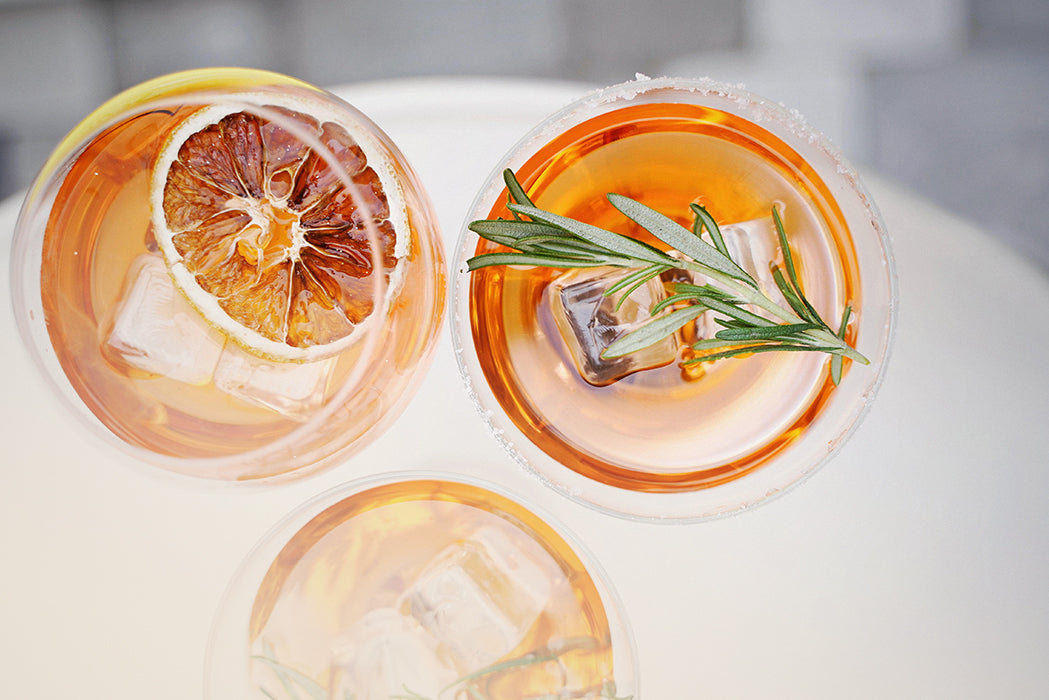
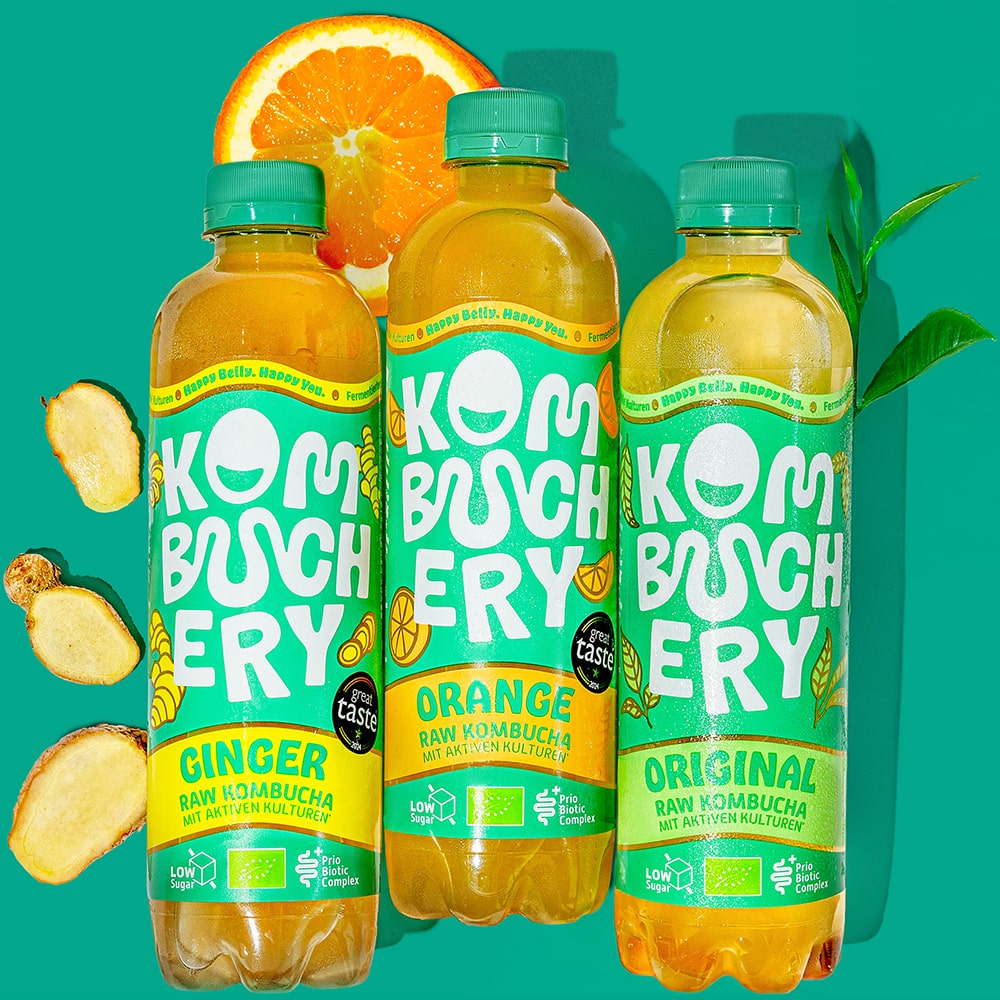
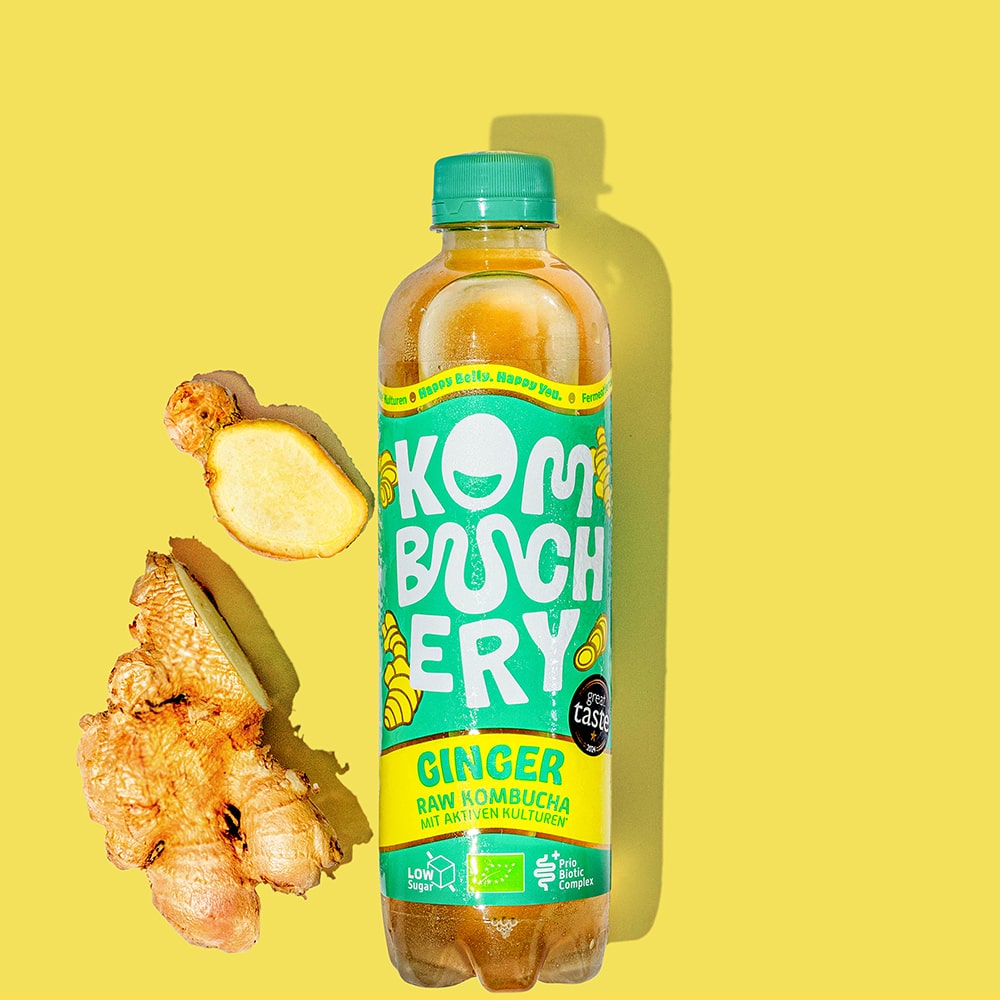
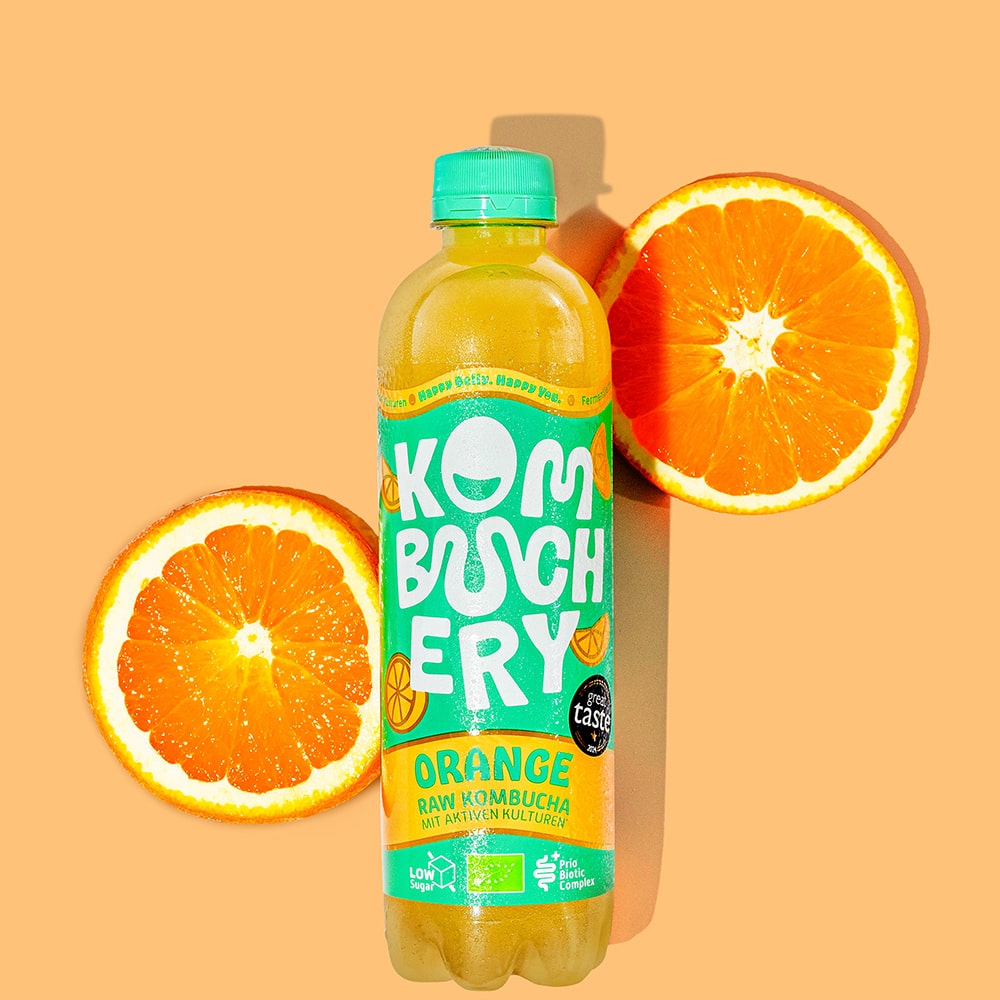
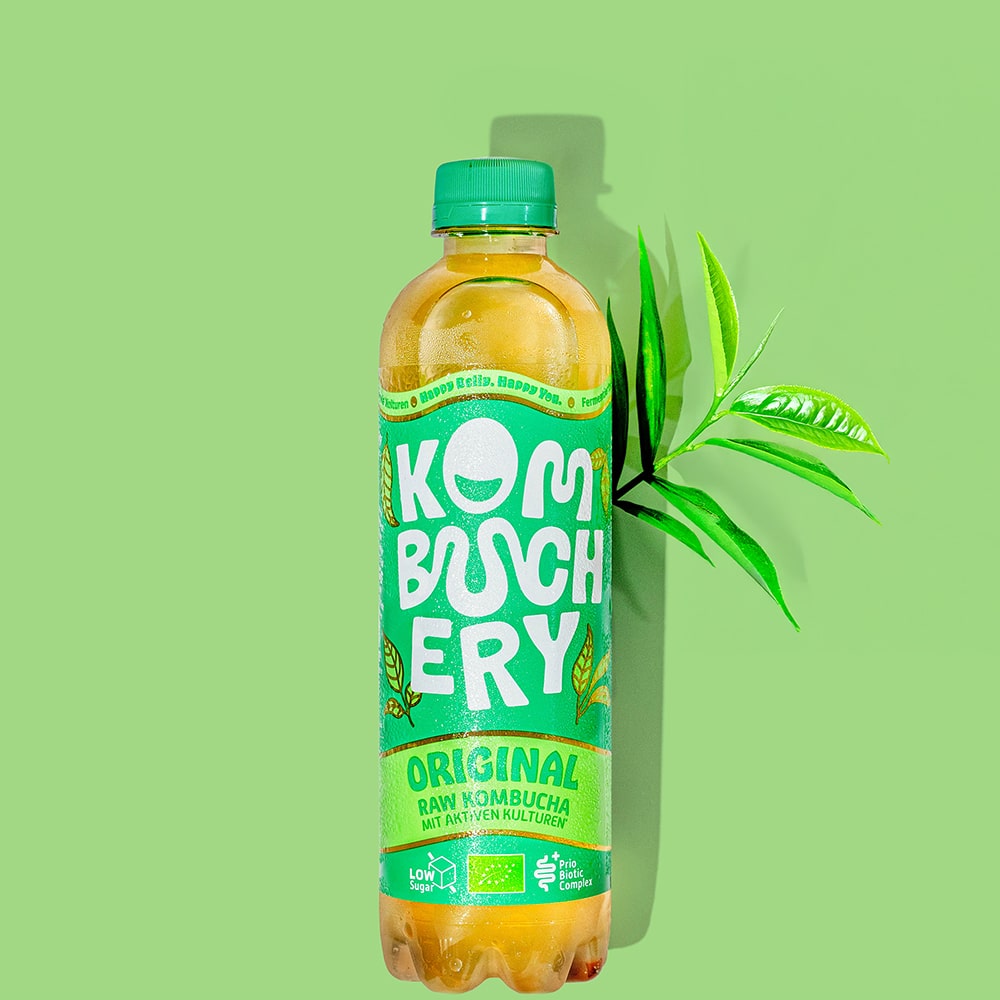
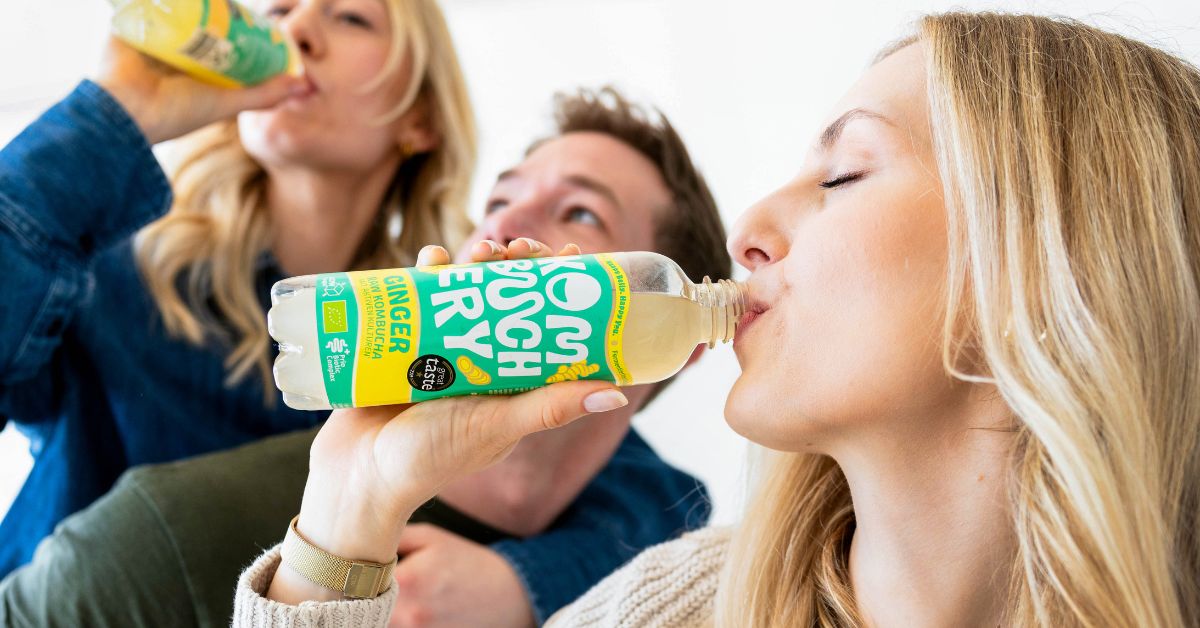
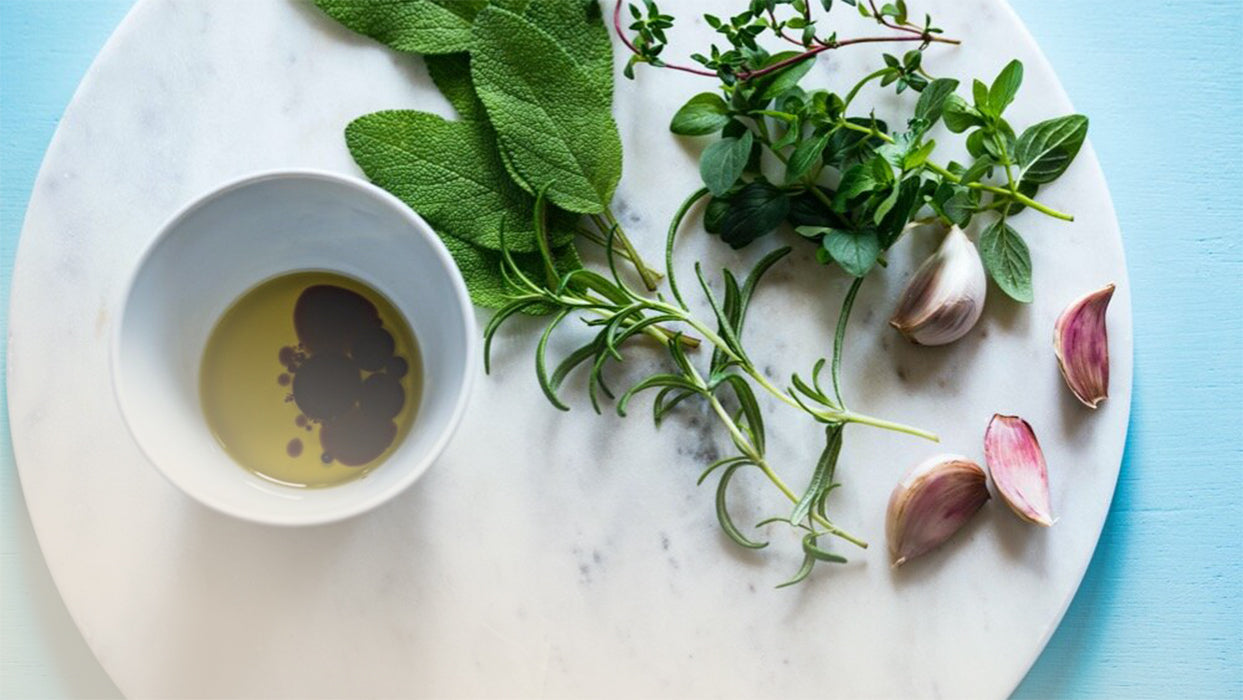

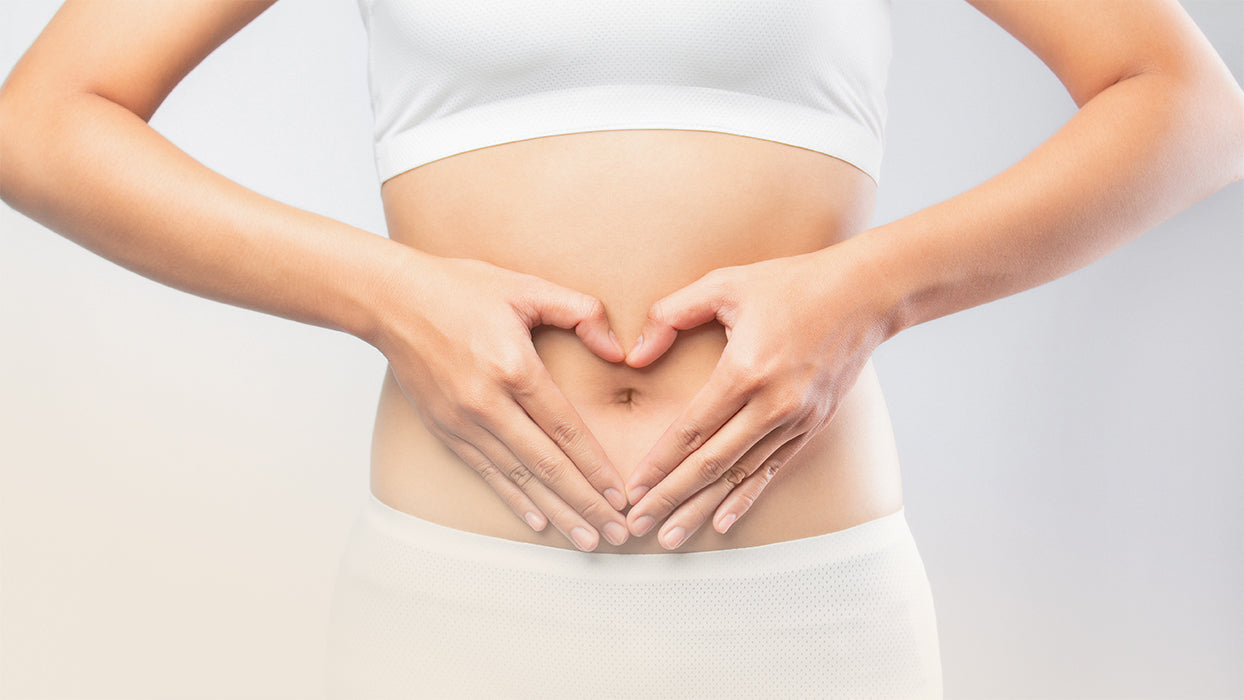
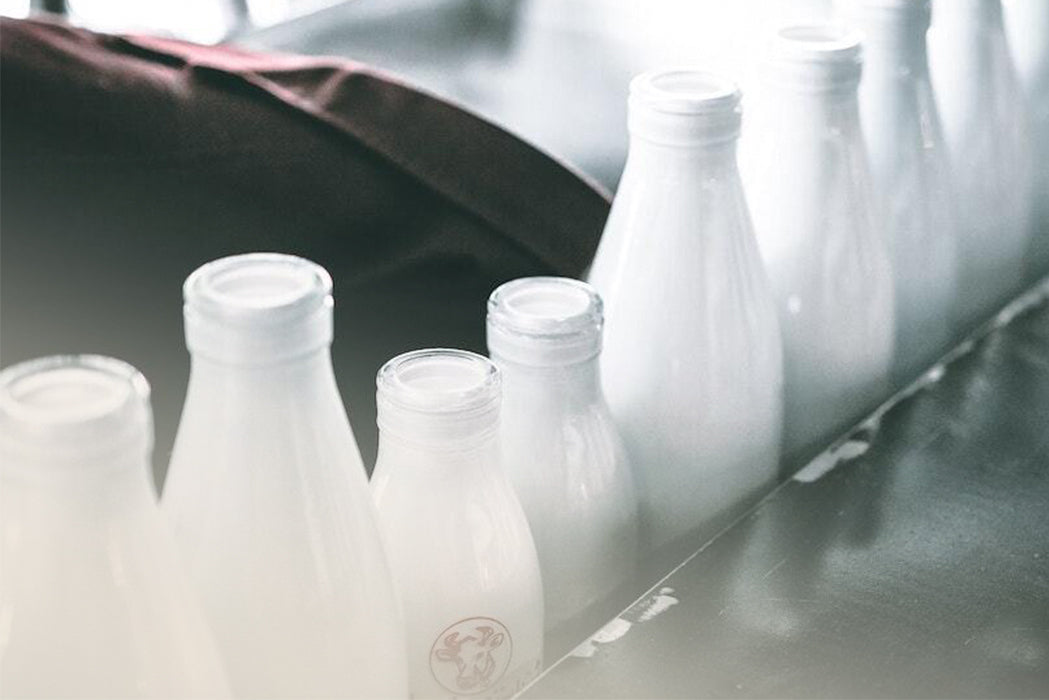
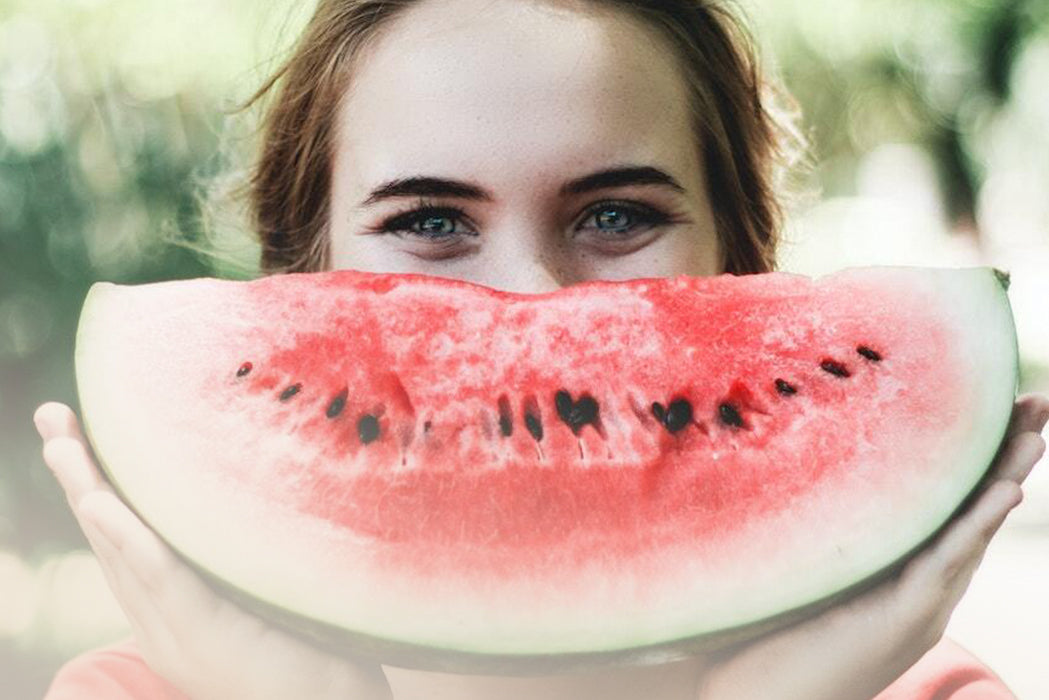
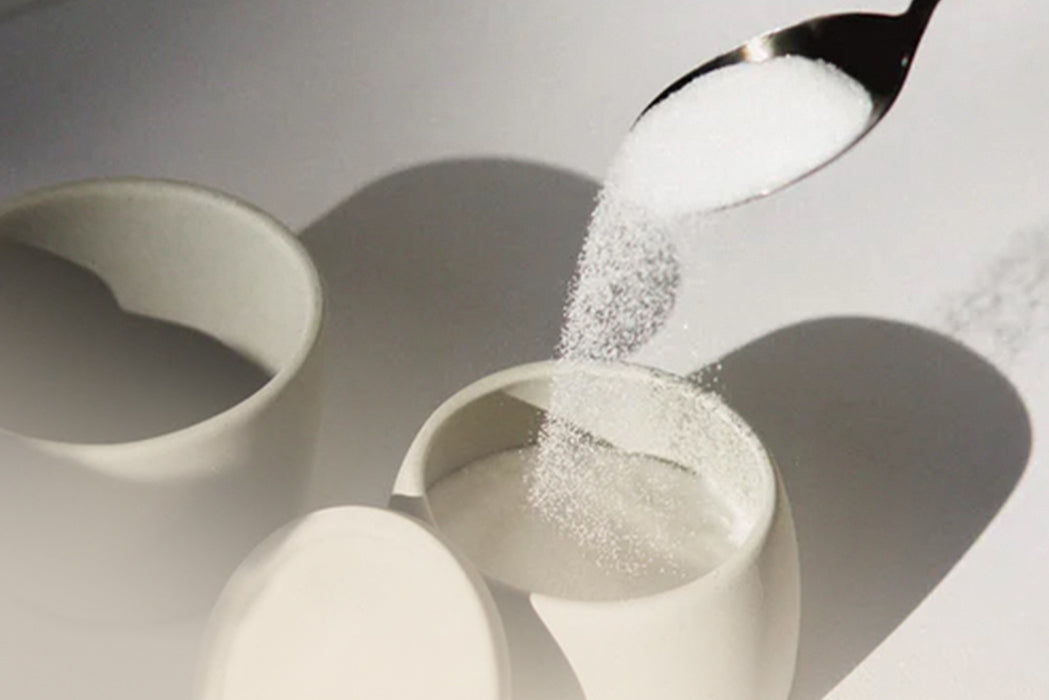
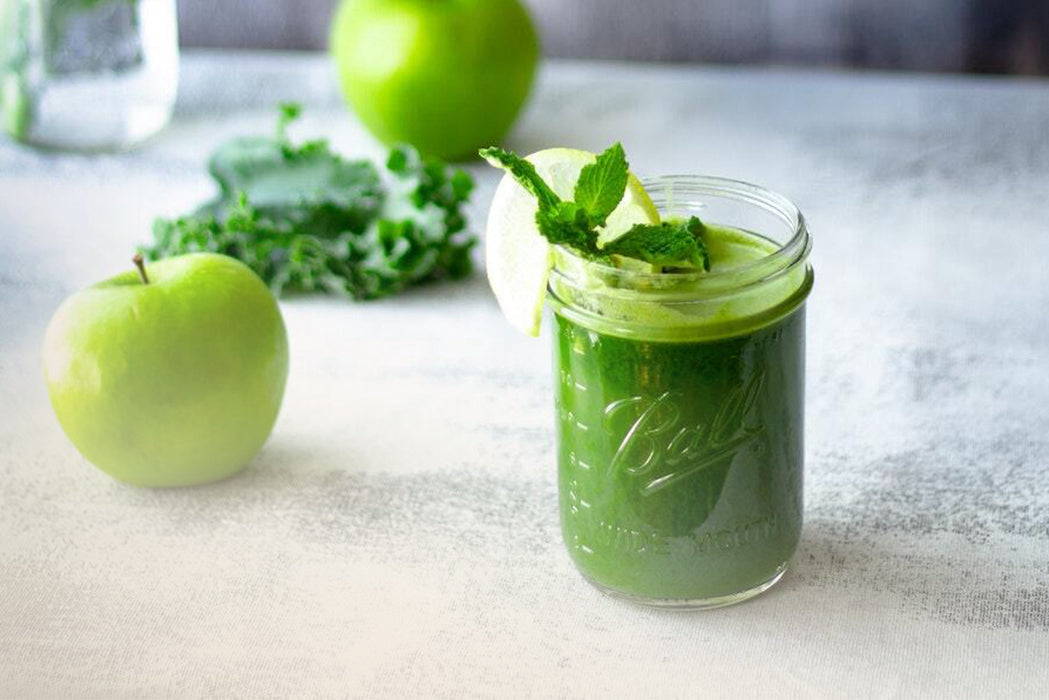
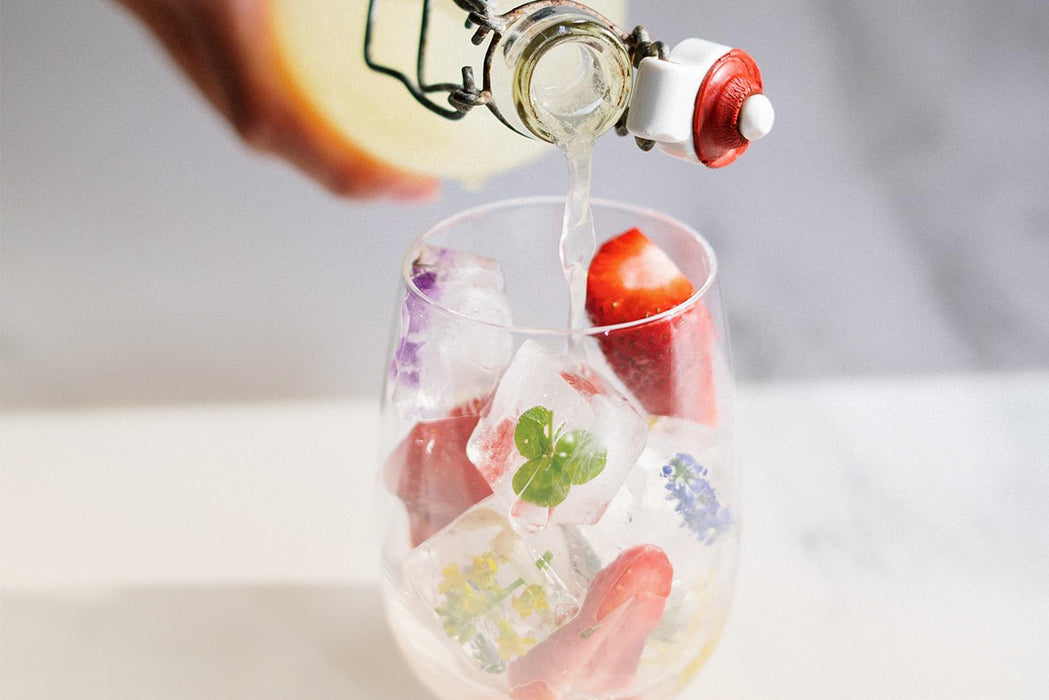
Split:
1 comment
Ich habe da ne Frage: ich habe das mit dem Scoby und dem Alkohol nicht verstanden. Mein Scoby macht mir Kefir, den ich ca. 5-6 Tage fermentieren lasse. Leider wird es immer zu sauer, also Essigartig und ich fülle es ab, bediene mich davon, lagere es kühl ( meist hält das so 4-5 Tage) und wenn ich es trinke wird mir leicht schumrig ( ich muss gestehen ich trinke seit 6 Jahren kein Alkohol und bin nichts mehr gewöhnt). Ist mein Scoby jetzt Bakterien technisch nicht mehr einwandfrei, wenn er solche Mengen Alkohol produziert dass ich es spühre? heisst dass es besonders fleissig ist oder dass er es nicht mehr packt? wachsen tut der Scoby wie blöd, das tut. hab auch mal gelesen dass umso länger er abgefüllt ist umso mehr gärt er nach umd bildet noch mehr Alkohol…aber Tag für Tag? wie bei mir 4-5 Tage draussen im kühlen bei 4 grad? ich hoffe du kannst mir helfen. danke dir.